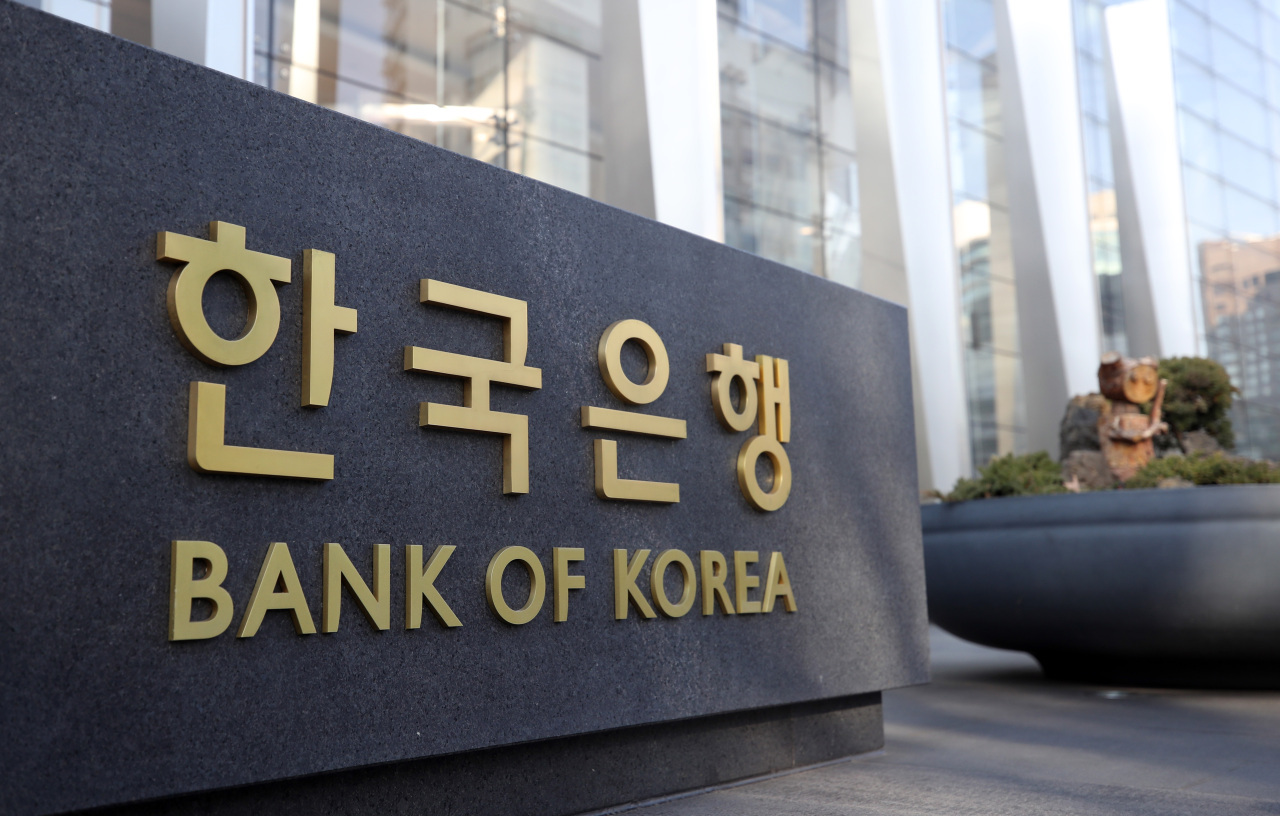Household saving rate likely to rise in pandemic-hit economy: BOK
By YonhapPublished : Feb. 14, 2021 - 13:21

South Korea's household saving rate is likely to rise if a pandemic-hit economic crisis persists, in a potential move that could delay a recovery in consumption, a research note from the Bank of Korea (BOK) showed.
The yearlong coronavirus pandemic has prompted consumers in South Korea to curb spending, mainly due to stricter social distancing measures, and stockpile cash.
"It is true that the higher domestic household saving rate this year is mainly attributable to a contraction in spending related to face-to-face services, such as tourism, food and accommodation, affected by enhanced social distancing measures," the BOK note said.
"However, the elevated household saving rate is expected to return to its previous level to a certain extent, driven by pent-up demand," it said.
"Nevertheless, a prolonged economic slump could cause a level-up of the saving rate, as households show behavioral changes in the form of heightened propensity to save and income inequality worsens," it said.
South Korea's consumer prices grew by less than 1 percent for the fourth straight month in January, indicating that the country's inflationary pressure remains low amid the pandemic.
The consumer price index rose 0.6 percent on-year in January, compared with a 0.5 percent on-year gain the previous month, according to the data compiled by Statistics Korea.
It marked the fourth consecutive month that the on-year growth rate of consumer inflation stayed below 1 percent.
The BOK noted that a delayed recovery in consumption, partly due to a level-up of the saving rate, may reduce the effectiveness of the government's stimulus measures aimed at boosting domestic demand.
"In the longer-term horizon, as savings (fund supply) start to exceed fund demand for investment, the secular stagnation of low growth, low inflation and low interest rates could become the new normal," it said. (Yonhap)
The yearlong coronavirus pandemic has prompted consumers in South Korea to curb spending, mainly due to stricter social distancing measures, and stockpile cash.
"It is true that the higher domestic household saving rate this year is mainly attributable to a contraction in spending related to face-to-face services, such as tourism, food and accommodation, affected by enhanced social distancing measures," the BOK note said.
"However, the elevated household saving rate is expected to return to its previous level to a certain extent, driven by pent-up demand," it said.
"Nevertheless, a prolonged economic slump could cause a level-up of the saving rate, as households show behavioral changes in the form of heightened propensity to save and income inequality worsens," it said.
South Korea's consumer prices grew by less than 1 percent for the fourth straight month in January, indicating that the country's inflationary pressure remains low amid the pandemic.
The consumer price index rose 0.6 percent on-year in January, compared with a 0.5 percent on-year gain the previous month, according to the data compiled by Statistics Korea.
It marked the fourth consecutive month that the on-year growth rate of consumer inflation stayed below 1 percent.
The BOK noted that a delayed recovery in consumption, partly due to a level-up of the saving rate, may reduce the effectiveness of the government's stimulus measures aimed at boosting domestic demand.
"In the longer-term horizon, as savings (fund supply) start to exceed fund demand for investment, the secular stagnation of low growth, low inflation and low interest rates could become the new normal," it said. (Yonhap)


![[Exclusive] Korean military set to ban iPhones over 'security' concerns](http://res.heraldm.com/phpwas/restmb_idxmake.php?idx=644&simg=/content/image/2024/04/23/20240423050599_0.jpg&u=20240423183955)




![[Pressure points] Leggings in public: Fashion statement or social faux pas?](http://res.heraldm.com/phpwas/restmb_idxmake.php?idx=644&simg=/content/image/2024/04/23/20240423050669_0.jpg&u=)
![[Herald Interview] 'Amid aging population, Korea to invite more young professionals from overseas'](http://res.heraldm.com/phpwas/restmb_idxmake.php?idx=644&simg=/content/image/2024/04/24/20240424050844_0.jpg&u=20240424200058)










